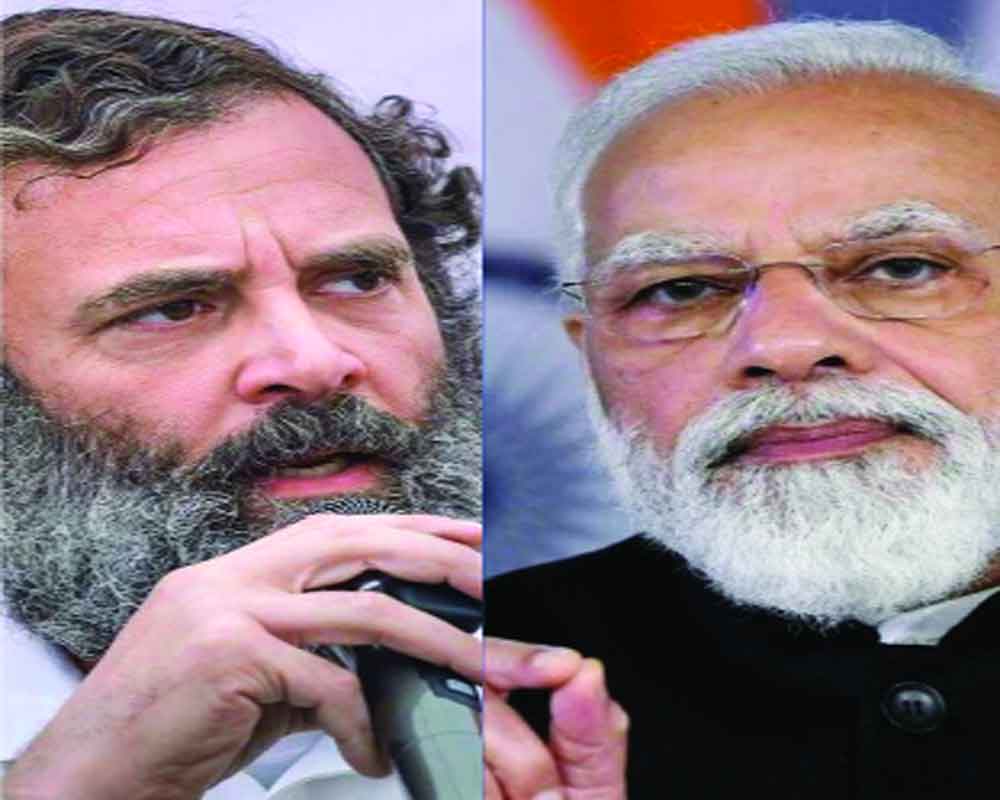The clash over ‘shakti’ underscores the complex interplay between cultural identity and politics
As the world’s largest democracy, India’s political landscape is shaped by a diverse array of cultural symbols and narratives, each carrying its socio-political significance. Politicians, cognizant of these dynamics, strategically deploy cultural symbolism to appeal to different segments of the electorate, often blurring the lines between tradition and modernity, symbolism and substance. Recently, Rahul Gandhi and Narendra Modi engaged in a verbal skirmish over the interpretation of the term ‘Shakti’ and its implications on their respective political narratives. Rahul emphasised his reverence towards women, equating them with divine power. Modi underscored the significance of ‘Shakti’, citing the Chandrayaan mission’s landing point named ‘Shiv Shakti’, and proclaimed readiness to safeguard this force against adversaries. The term ‘Shakti’ holds deep cultural and spiritual significance in India, representing feminine energy, power, and strength. Rooted in Hindu mythology, it is associated with goddesses such as Durga, Kali, and Lakshmi, embodying various aspects of power and vitality. Rahul Gandhi, leader of the Indian National Congress, has been actively employing the symbolism of Shakti in his political messaging. Gandhi’s invocation of Shakti aims to project a narrative of empowerment, particularly focusing on women’s rights and social justice. By aligning himself with the symbolism of Shakti, Gandhi seeks to appeal to the electorate’s aspirations for a more inclusive society.
On the other hand, PM Modi, has also incorporated the concept of ‘Shakti’ into his political rhetoric. Modi, known for his oratory skills and ability to resonate with the masses, has utilised the symbolism of Shakti to portray himself as a strong and decisive leader capable of safeguarding the nation’s interests. For Modi, invoking Shakti is not just about cultural symbolism but also about projecting himself as the embodiment of strength and resolve, crucial attributes in the realm of governance and national security. However, the recent spat between Rahul Gandhi and Modi over the interpretation of ‘Shakti’ reveals deeper political motives at play. Gandhi, in his attempts to reclaim the narrative of Shakti, accused Modi of distorting its true essence for political gain. He argued that Modi’s version of Shakti is divisive and exclusionary, emphasising brute force over empowerment and inclusivity. Gandhi’s critique of Modi’s appropriation of ‘shakti’ reflects his broader strategy of challenging the BJP’s narrative and offering an alternative vision for India’s future. In response, Modi dismissed Gandhi’s allegations, asserting that his government’s policies are indeed rooted in the principles of Shakti, emphasising progress, development, and national pride. Modi accused Gandhi of attempting to hijack the cultural symbolism of ‘shakti’ for his political agenda, labelling it as opportunistic and insincere. Whether it’s Rahul’s quest for a inclusive ‘shakti’ or Modi’s assertion of a resolute ‘Shakti,’ the debate transcends mere semantics, offering a broader ideological contestation that defines Indian politics today.


























